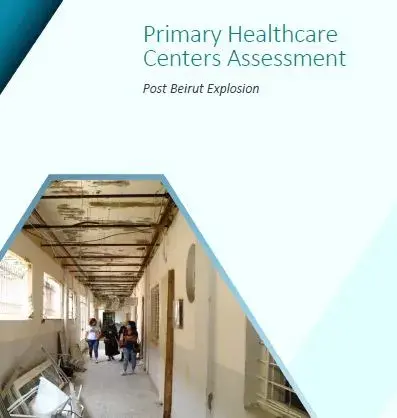On August 4, 2020, an explosion at the Beirut Port devastated the city and its citizens with a shockwave that spread for kilometers. Before the explosion, fires fulminated throughout dock number 12, resulting in blooming smoke of black and purple. This smoke would serve as a harbinger for the catastrophic explosion that eventually resulted in more than 170 casualties, more than 50 people missing, 6,000 injured and approximately 300,000 residents displaced.
The primary trigger for the explosion is yet to be determined. However, the chemical substance responsible for the massive explosion was determined to be ammonium nitrate, roughly 2,750 tons.
The damage was drastic in terms of its effect on human life, livelihood, and the infrastructure of the city. The damages to infrastructure cannot be understated, particularly for the health sector through its vital institutions including hospitals, clinics, primary healthcare centers, and dispensaries. It is well known that during crisis and disasters, health care is seriously affected by interruption of continuity of care, poor access, shortage of medical supplies, and often a lack of essential Sexual and Reproductive Health (SRH) services.
The Primary Health Care assessment dashboard can be retrieved at
https://unfpa-lebanon---health-assessment-tool-2020.yolasite.com/


